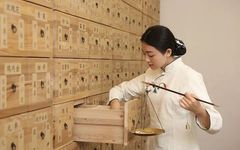The best doctor is ourselves, as no one understands our body better than we do~
Traditional Chinese medicine (TCM) is a treasure of China. Experienced TCM practitioners can use it to combat various ailments, and we can also apply it in dietary therapy to nourish our bodies~
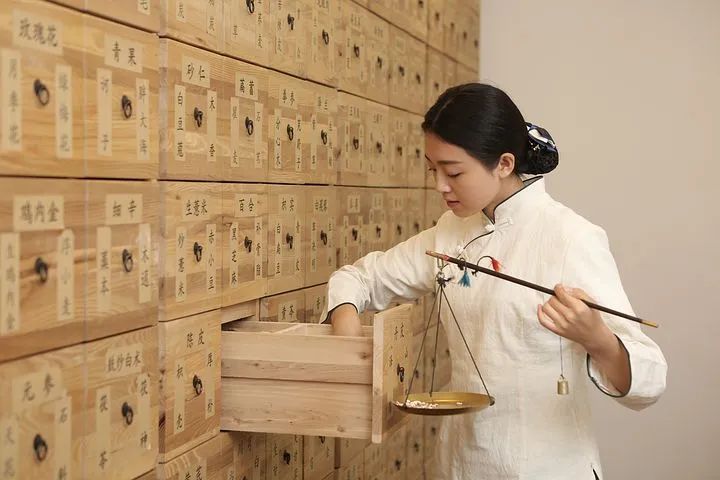
Ten essential Chinese medicinal herbs for every Chinese household
Ling Zhi (Reishi Mushroom): Strengthens the foundation and expels evils, the herb of immortals
Ren Shen (Ginseng): A little every day promotes health and longevity
Shan Zha (Hawthorn): A great aid for digestion and blood stasis
Huang Qi (Astragalus): The premier herb for tonifying Qi
Sheng Jiang (Fresh Ginger): Protects against evils, supports Yang Qi, disperses cold and dampness
Bai Mao Gen (Imperata Root): A cooling herb that stops bleeding
Ju Hua (Chrysanthemum): The best liver-protecting tea for modern people
Yi Yi Ren (Job’s Tears): Not a pearl but better than a pearl
Gan Cao (Licorice): Nourishes both people and beauty, a tonic for the common folk
Hua Jiao (Sichuan Pepper): The spicy doctor, characteristically dispels cold
Top medicinal properties of Chinese herbs
Best for clearing heat and detoxifying—Jin Yin Hua (Honeysuckle);
Best for aromatic dampness transformation—Huo Xiang (Agastache);
Best for promoting urination and draining dampness—Fu Ling (Poria);
Best for aromatic opening of orifices—She Xiang (Musk);
Best for clearing heat—Shi Gao (Gypsum);
Best for purging fire—Huang Lian (Coptis);
Best for descending Qi—Chen Xiang (Agarwood);
Best for generating fluids—Shi Hu (Dendrobium);
Best for resolving phlegm—Ban Xia (Pinellia);
Best for calming the liver—Ling Yang Jiao (Antelope Horn);
Best for cooling and pungent—Bo He (Peppermint);
Best for pain relief—Yuan Hu (Corydalis);
Best for stopping bleeding—San Qi (Notoginseng);
Best for tonifying Yang—Lu Rong (Deer Antler Velvet);
Best for tonifying Yin—Nu Zhen Zi (Ligustrum Fruit);
Best for purging—Da Huang (Rhubarb);
Best for cooling blood—Xi Jiao (Rhinoceros Horn);
Best for regulating Qi—Zhi Shi (Bitter Orange);
Best for soothing the liver—Yu Jin (Curcuma);
Best for invigorating blood—Dan Shen (Salvia);
Best for tonifying Qi—Ren Shen (Ginseng);
Best for tonifying blood—Dang Gui (Angelica);
Best for tonifying the spleen—Shan Yao (Chinese Yam);
Best for digestion—Shen Qu (Malt);
Best for clearing phlegm—Bei Mu (Fritillaria);
Best for reducing jaundice—Yin Chen (Virgate Wormwood);
Best for dispelling wind—Du Huo (Angelica Pubescens);
Best for calming the spirit—Zao Ren (Jujube Seed);
Best for warming the interior—Fu Zi (Aconite).
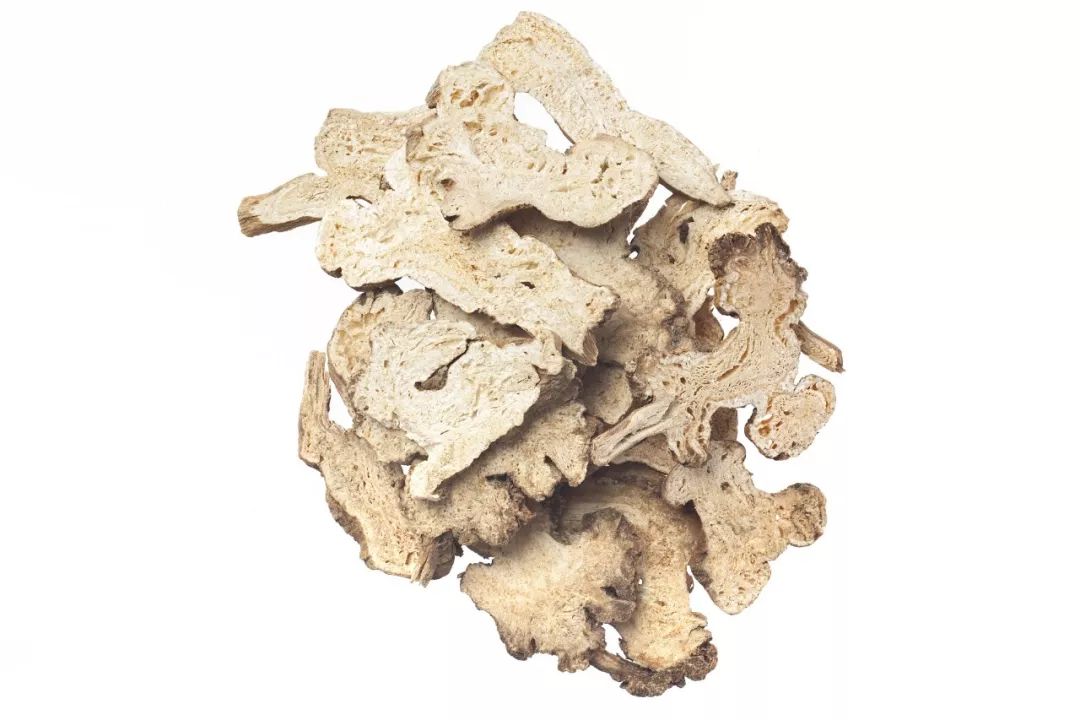
Good herbs make women beautiful for a lifetime
Dang Gui (Angelica): A sacred blood-nourishing herb, ensuring women’s lifelong safety
Hong Hua (Safflower): A flower that invigorates blood and beautifies
Yi Mu Cao (Motherwort): The beauty expert of Empress Wu Zetian
Xue Lian Hua (Snow Lotus): A flower blossoming from the ice mountain
Ai Cao (Mugwort): A natural health “comforter”
Aloe Vera: Cleopatra relied on it to conquer the world
Bai Ji (Bletilla): The whitening fairy among herbs
Ge Gen (Kudzu): The “women’s ginseng” that relieves heat and generates fluids
Bai Shao (White Peony): A confidante for nourishing Yin and blood
Xing Ren (Apricot Kernel): Nourishes the skin, keeping it youthful and fair
Yu Zan Hua (Hosta Flower): Nourishes blood and removes spots, beautiful and flawless like a flower
Protecting our innate foundation
Gou Qi Zi (Goji Berries): The ancient elixir for seasonal health
Dong Chong Xia Cao (Cordyceps): A dual tonic of yin and yang, unique in the world
San Qi (Notoginseng): A life-saving herb, invaluable
Qian Shi (Euryale Seed): A water fairy loyal to the spleen and kidneys
Nu Zhen Zi (Ligustrum Fruit): Tonifies the liver and kidneys, a perfect harmony of heaven and man
Du Zhong (Eucommia): The first herb for dual regulation of blood pressure
Tu Si Zi (Cuscuta): A gentle tonic, starting from the womb
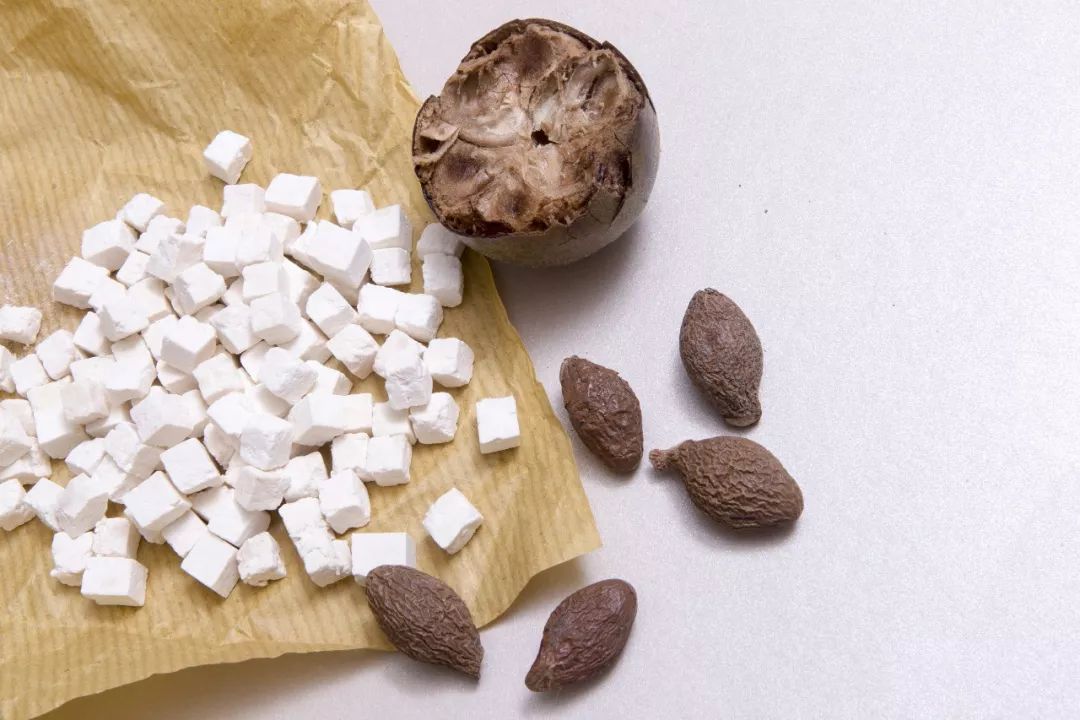
The source of health after birth
Bai Fu Ling (Poria): Strengthens the spleen and nourishes the center, even Empress Cixi could “return to youth”
Shan Yao (Chinese Yam): A divine food that nourishes our postnatal foundation
Fan Mu Guo (Papaya): The “longevity fruit” ensures your gastrointestinal peace
Chen Pi (Dried Tangerine Peel): The most common herb for strengthening the spleen
Huo Xiang (Agastache): Supports the spleen and stomach Qi, allowing you to eat as you please
Ding Xiang (Clove): A fragrant herb that warms the stomach
Common ailments without seeking help
Ban Lan Gen (Isatis Root): A classic remedy for colds
Jie Geng (Platycodon): A cough remedy that makes the great chef smile
Luo Han Guo (Monk Fruit): A sweet fruit that can lower blood sugar
Tao Ren (Peach Kernel): Best at invigorating blood, dispelling stasis, and promoting bowel movements
Zi Su (Perilla): Dispels cold and warms the stomach, essential for seafood dishes
Nan Gua Zi (Pumpkin Seeds): Eating a handful daily alleviates prostate concerns
Bin Lang (Betel Nut): A top herb for digestion and resolving accumulation
Zhu Yu (Cornelian Cherry): The best choice for external blood pressure reduction
Dong Sang Ye (Mulberry Leaf): A wonderful remedy for night sweats and spontaneous sweating
Kuan Dong Hua (Coltsfoot): The first choice for chronic cough and lung cold patients
Luo Di Sheng Gen (Root of the Ground): A sacred herb for injuries in the Dai family
Shi Chang Pu (Acorus): Beneficial for the heart, a blessing for coronary heart disease patients
Da Ji (Cirsium): A good remedy for stopping bleeding, whether used externally or internally
Juan Bai (Selaginella): An herb that stops inflammation and bleeding
Xian He Cao (Agrimony): Quickly restores physical strength
Pu Huang (Cat Tail Pollen): A flower pollen that can lower blood lipids
Methods for calming the mind and enhancing brain function
Tian Ma (Gastrodia): A protective deity for wise people, ensuring they never lose their way
Suan Zao Ren (Sour Jujube Seed): Banishes insomnia, bringing sweet dreams for a lifetime
Hong Zao (Red Date): Nourishes blood and calms the spirit, can be eaten as a snack daily
Huang Hua Cai (Day Lily): Enhances brain function and clears the heart, bringing joy and worry-free living
Gui Yuan (Longan): Nourishes blood, calms the spirit, and strengthens the body, with countless benefits
Lian Hua (Lotus): Clears the heart and nourishes the spirit, a treasure for strengthening essence and bones
Yuan Zhi (Polygala): An effective remedy for palpitations, forgetfulness, and insomnia with vivid dreams
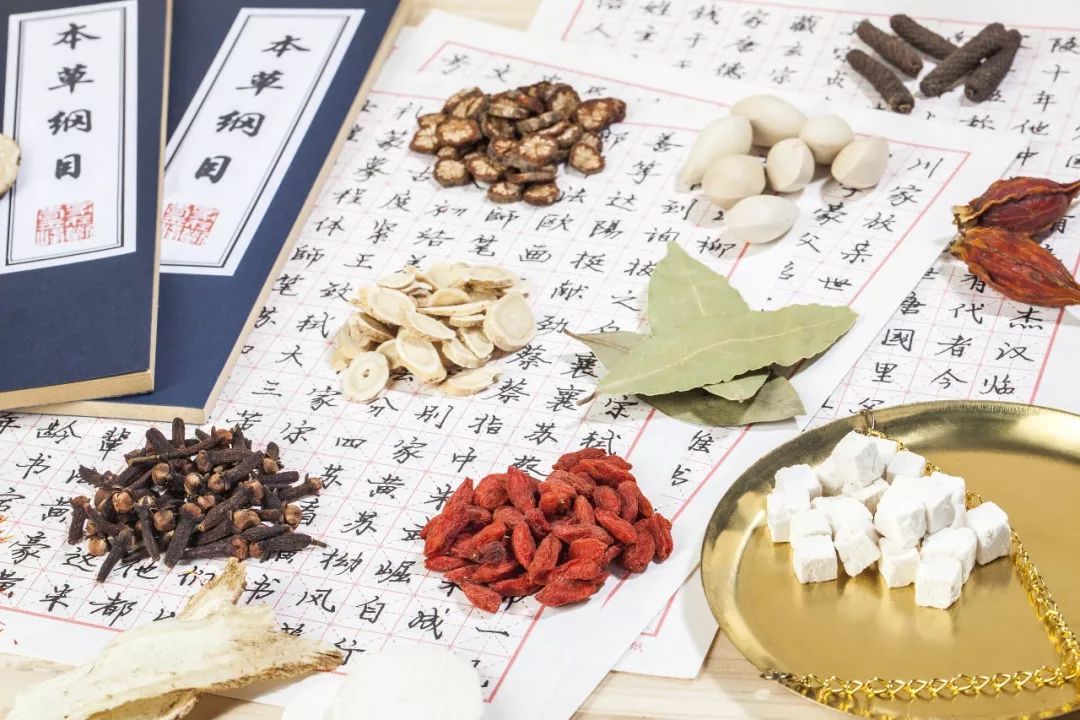
Effortless herbal detoxification
Jin Yin Hua (Honeysuckle): With it, even the hottest summer feels cool
Pu Gong Ying (Dandelion): Use it for any unknown swelling or toxin
Yu Xing Cao (Houttuynia): Anti-inflammatory and detoxifying, a small herb with great effects
Jue Ming Zi (Cassia Seed): The earliest used ophthalmic herb in history
Pi Pa Ye (Loquat Leaf): A commonly used herb for clearing lung heat
Zhi Zi (Gardenia): Excellent at resolving heat toxins throughout the body
Xia Ku Cao (Selfheal): The top herb for clearing heat and draining fire, especially for lymphatic tuberculosis
Zi Hua Di Ding (Viola): A key herb for detoxification and abscess resolution
Mu Dan (Peony): A marvelous cooling blood herb, a divine medicine among flowers
Feng Xian Hua (Impatiens): An external remedy for clearing heat and detoxifying, known as the “daughter flower”
Huang Lian (Coptis): Clears damp-heat from the five organs, the world’s most bitter herb
Delicious vegetarian dishes on the table
Yin Er (Tremella): The best food for nourishing the lungs and moistening Yin
Bai He (Lily Bulb): Benefits the five organs, delicious in any preparation
Jie Cai (Shepherd’s Purse): An excellent vegetable for patients with “three highs” (hypertension, hyperglycemia, hyperlipidemia)
Bo He (Mint): An aromatic therapy for soothing the throat
Hui Xiang (Fennel): A remedy for chronic gastritis
Bai Guo (Ginkgo): Unquestionably effective for treating cough and asthma
Che Qian Cao (Plantago): The best dietary therapy for prostatitis
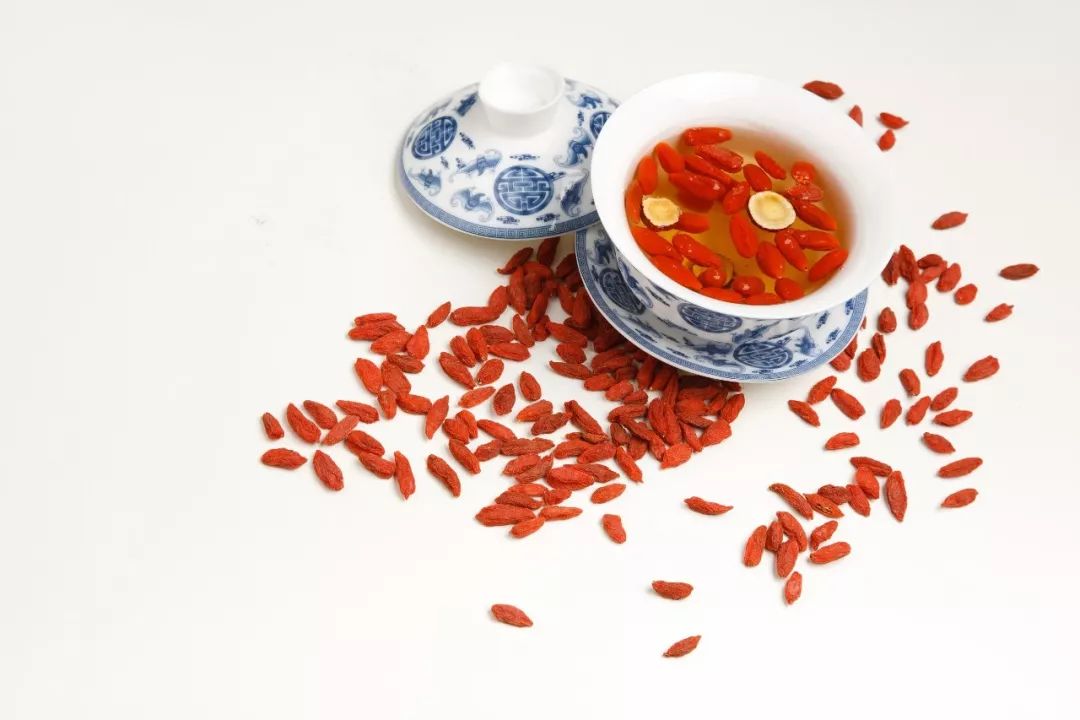
Digestive herbs
Digestive food accumulation: Shan Zha (Hawthorn) for meat accumulation, treating chest and abdominal pain and resolving stasis.
Mai Ya (Barley Sprout) for digesting rice and milk, relieving distension and resolving liver Qi stagnation.
Laifu (Radish Seed) for food accumulation and regulating Qi, suitable for fullness and phlegm.
Nei Jin (Inner Gold) for resolving accumulation and stones, effective for various food accumulations and incontinence.
Calming herbs
Heavy calming herbs: Zhu Sha (Cinnabar) and Ci Shi (Magnetite), Amber and Long Gu (Dragon Bone).
Yao Xin (Bai Zao Ren) for nourishing the heart and calming the spirit, Yuan Zhi (Polygala) and He Huan Hua (Mimosa) for nighttime tranquility.
Zhu Sha detoxifies and calms the heart, treating palpitations and insomnia.
Ci Shi calms the heart and liver, enhancing hearing and vision, stabilizing anxiety.
Long Gu calms fright and soothes the spirit, treating dizziness.
Suan Zao Ren nourishes the heart and benefits the liver, treating blood deficiency, insomnia, and night sweats.
Yuan Zhi opens the orifices, expelling phlegm, effective for forgetfulness, epilepsy, and cough.
Detoxifying, insecticidal, drying, and anti-itching herbs
Bai Fan (Alum), She Chuang Zi (Cnidium), and Liu Huang (Sulfur), Da Feng (Dandelion) and Jing Suan (Garlic).
Xiong Huang detoxifies and kills intestinal worms, effective for eczema, snake bites, and swelling.
Sulfur relieves itching, treats scabies, and can be taken internally to enhance Yang and promote bowel movements.
Phlegm resolving, cough relieving, and asthma relieving herbs
Resolving phlegm: Ban Xia (Pinellia), Xing Ren (Apricot Kernel), Bai Fu Zi (White Aconite), and Jie Zi (Mustard Seed).
Bai Qian (Cynanchum) and Qie (Bitter Apricot) for phlegm resolution, effective for cough and throat relief.
Da Hai (Seaweed) and Huang Yao (Yellow Medicine) for clearing heat and phlegm, promoting bowel movements.
Stopping cough and relieving asthma: Xing Ren (Apricot Kernel) and Dong Hua (Winter Flower), Su Zi (Perilla) and Bai Bu (Stemona).
Zi Wan (Aster) and Dou Ling (Aristolochia) for cough relief, effective for phlegm and cough.
Ban Xia is warm and dries phlegm, dispersing lumps and treating nausea and dizziness.
Jie Geng (Platycodon) resolves phlegm and promotes lung function, relieving cough and throat discomfort.
Chuan Bei (Fritillaria) resolves phlegm and moistens the lungs, effective for dry phlegm and nodules.
Zhe Bei (Zhejiang Fritillaria) resolves phlegm and disperses lumps, effective for hot phlegm and nodules.
Gua Lou (Trichosanthes) clears the lungs and resolves heat phlegm, promoting bowel movements.
Xing Ren (Apricot Kernel) lowers cough and asthma, moistening the intestines and promoting bowel movements.
Su Zi (Perilla) descends Qi and resolves phlegm, effective for cough and constipation.
Bai Bu (Stemona) moistens the lungs and treats various coughs, effective for lice and parasites.
Sang Bai (Mulberry) clears the lungs and treats heat-induced asthma, promoting urination and reducing swelling.
Ting Li (Ting Li): Clears the lungs and promotes urination, effective for phlegm accumulation and cough.
© Copyright Statement: This article’s images and text are sourced from the internet, and the copyright belongs to the original author. If there is any infringement, please contact us for removal.
WeChat push has been revised, I don’t want to miss you, click [See] to see me👇

